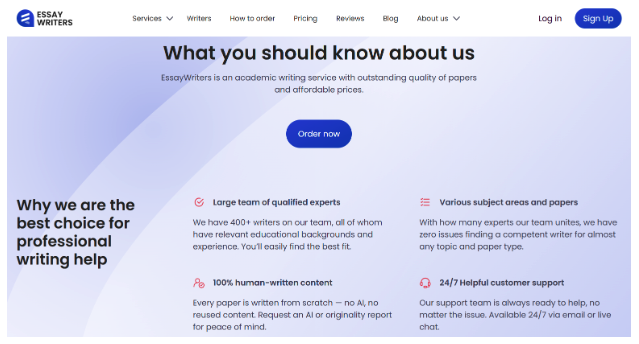Which of The Following Is An Internet Job Search Don’t
As the job market continues to evolve, the Internet has become an increasingly valuable tool for job seekers. With a plethora of job search websites, career networking platforms, and online job boards, it is easier than ever to find employment opportunities. However, not all job search methods are created equal. In fact, there are several common mistakes that job seekers often make when conducting an online job search. In this article, we will discuss the top "don’ts" of internet job searching and you can test your knowledge of online job searching.
Question 1: Which of the following is an Internet Job Search Don’t?
A) Use all the job boards you can find
B) Use a handful of large and niche job sites
C) Use niche job search websites that cater to your profession
D) Incorporate job search websites into your daily activities
Answer: A) Use all the job boards you can find.
You want to use a combination of large job boards, such as Indeed, ZipRecruiter, and LinkedIn, and some niche job search websites that cater to the jobs you are searching for. But using everything is a losing strategy. You only have so much time in a day and you must obtain a good ROI (return on investment) for your time. The best strategy is to find one or two large job boards and two to three niche sites that you can use and check regularly. If a job board or job search website doesn’t prove to be fruitful, you can always take it out and put another site into the mix.
Question 2: Which of the following is an Internet Job Search Don’t?
A) Send your resume through job search websites when you find an opening that aligns with your background and qualifications
B) Post your resume to large job search websites for anyone to find
C) Share your resume with people you trust on LinkedIn
D) Apply directly through the company’s website
Answer: B) Post your resume to large job search websites for anyone to find
Your resume contains a lot of personal information - A LOT. Unfortunately, it doesn’t take much to obtain an account to view resumes on these job search platforms. If you’re willing to pay and have a company email address, almost anyone can obtain an account and view your information. That opens you up to a lot of risk for identity theft and other problems. It’s best to control who has access to your resume and who does not.
Related Article: Why you shouldn’t post your resume online
Question 3: Which of the following is an Internet Job Search Don’t?
A) Find and apply to a defined, narrow list of jobs
B) Apply to jobs you are qualified for
C) Apply to companies on your top 30 target list
D) Apply to everything that interests you
Answer: D) Apply to everything that interests you
In today’s job market, no one wants a generalist. They want specialists. Applying to everything that interests you creates a few problems. First, it becomes very cumbersome to tailor a resume for a multitude of jobs. You could create a situation where all you do is tailor resumes and apply and that is not a winning strategy. Second, if you try to use the same resume for many different jobs, you’ll look like a generalist. And third, it becomes challenging to absorb everything. If you focus on two or three job types, you can find the people who perform those jobs, hang out with them, build deep relationships, streamline your job board search efforts, and run a very efficient job search online.
Hello, World!
Question 4: Which of the following is an Internet Job Search Do?
A) Apply to jobs you are 80% qualified for
B) Apply to jobs you are 100% qualified for
C) Apply to jobs where you meet all the critical qualifications for success
D) Apply to everything that interests you
Answer: C) Apply to jobs where you meet all the critical qualifications for success
Using percentages to determine whether you should apply is rather arbitrary. You could meet all of the qualifications except one. But if that one is the most important qualification to perform the job, you’re out. Instead of focusing on how many qualifications you check off, take the time to know the job you are applying for intimately. Know what will determine success and what will not. Then make sure you have the necessary qualifications for success. If you do, apply.
Question 5: Which of the following is an Internet Job Search Don’t?
A) Apply using sites like Indeed or LinkedIn
B) Skip the application and email the hiring manager directly
C) Go to the company website and apply directly
D) Apply to the job where you found it and send the recruiter a personalized message
Answer: B) Skip the application and email the hiring manager directly
The average person receives over 100 emails per day, and that’s not even including spam emails. By not applying and sending your resume to the hiring manager directly, you could miss out on the opportunity. The manager may not see your email right away. They may not forward it to the right person in time. And by the time you get into the hiring pipeline, the company already has scheduled first-round interviews and you’re on a waitlist now. Don’t try to bypass the application process unless you personally have a relationship with that manager. Even then, they’ll most likely tell you to apply with your resume in addition to the personal connection or referral.
Question 6: Which of the following is an Internet Job Search Don’t?
A) Use the quick apply to fire off as many applications as possible
B) Read through each job description and tailor a resume
C) Go to the company website and apply directly
D) Target niche roles that fit your background
Answer: A) Use the quick apply to fire off as many applications as possible
While there is a case to be made for quantity leading to success, using the quick-apply to send the same resume to every company and doing nothing else will result in sending hundreds of applications before you obtain an interview. Instead, tier your job prospects by importance. Tier 1 jobs are those for which you are highly qualified and highly interested in. For these jobs, it’s best to take a moment and tailor your resume before sending it. For Tier 2 jobs, those for which you are less qualified and less interested, you can fire out some quick-applies and see what happens. This strategy is all about time management. Spend your time where it’s most likely to be fruitful - with companies that you are interested in and highly qualified to work for.
Question 7: Which of the following is an Internet Job Search Don’t?
A) Spend your time on what you are most comfortable and skilled at
B) Spend your time on what produces the most interviews
C) Spend all your time applying to job postings
D) Balance your time between networking and applying for jobs
Answer: C) Spend all your time applying to job postings
No two job searches are the same, but a diversified strategy has been proven to lead to more success. You should have a method to track your job search successes. This will help you spend more time on what works and less time on what doesn’t work. Lean into your strengths. If you’re really good at meeting new people and talking to them, spend more time networking and building relationships. If you’re a really good SDR (sales development representative), pick up the phone and cold-call employers to find a job. If you’re really great at copywriting, spend more time on your resume and crafting the best message possible that will resonate with the employers you want to work with next.
Question 8: Which of the following is an Internet Job Search Don’t?
A) Send a personalized message with your resume attached to the hiring manager after applying
B) Only send your resume through the ATS or job search website
C) Follow the hiring process as outlined in any instructions on a career site
D) Follow-up if you don’t hear back from an application
Answer: B) Only send your resume through the ATS or job search website
Having a great resume is one thing. Using it well is another. There are many factors that could impact your chances of getting an interview. For example, you could be the 250th person to apply, and the recruiter already has a shortlist of qualified candidates by the time they get to application 120 so they stop reviewing additional resumes because they have 30 other openings they are also working on. This is not an unrealistic scenario in corporate recruitment. If you only send your resume by hitting the apply button, you may not be seen. But if you emailed the recruiter and the hiring manager a well-crafted email and tactfully attached your resume to it - that could ensure you get seen.
Question 9: Which of the following is an Internet Job Search Don’t?
A) Apply for remote roles regardless of where the company is based
B) Apply for remote roles at companies near your hometown
C) Apply for remote roles that are in cities you would relocate to
D) Apply for remote roles with companies that have physical locations listed online
Answer: A) Apply for remote roles regardless of where the company is based
If you’re applying for remote jobs, location still matters. Location is ingrained in our brains. In the same way, you like to buy local, employers like to hire local - even if you will never set foot in the office besides picking up your equipment on day one. Also, be wary of job search scams. If you can’t find a physical location for the company online, ask smart questions during an interview and make sure they are legitimate.
Question 10: Which of the following is an Internet Job Search Don’t?
A) Utilizing social media to find jobs and build credibility
B) Utilizing job boards to find jobs
C) Ignoring social media, online mentions, and LinkedIn
D) Utilizing community groups online to connect with people doing the job you want to do next
Answer: C) Ignoring social media, online mentions, and LinkedIn
It’s common knowledge that the super majority of employers are going to Google your name and put it into LinkedIn to see what pops up. Google is your new resume and what it shows or doesn’t show is telling. Gone are the days when we could completely control our own narrative with only a resume. Today, a social media and online reputation audit is almost mandatory for every job seeker. Your resume and LinkedIn profile must work in harmony and tell similar stories. Your social media can’t have anything scandalous on it that may spook employers.
Question 11: Which of the following is an Internet Job Search Don’t?
A) Become a thought leader on LinkedIn by posting regular content
B) Commenting on hiring manager and recruiter’s LinkedIn posts
C) Posting on LinkedIn in a professional manner and keeping it positive
D) Including your desired job title in your LinkedIn headline
Answer: A) Become a thought leader on LinkedIn by posting regular content
Trying to become a thought leader through regular content on LinkedIn is mostly a distraction and a waste of time when conducting an online job search. Posting content that is positive from time to time could be helpful, but using content as a primary job search strategy is not. Instead, focus on building relationships with people who do the job you want to do next, with hiring managers who hire for that job, and with recruiters who recruit for that job.
Question 12: Which of the following is an Internet Job Search Don’t?
A) Continue job searching even after you have a signed offer
B) Continue finding new job opportunities and applying for jobs even if you have gone on multiple final-round interviews
C) Continue building relationships in your professional field, even after you’ve accepted a new job
D) Stop your job search after you accept a job offer
Answer: D) Stop your job search after you accept a job offer
Don’t stop your job search until you have started with your new company, and even then, it’s always good to keep your options open. Stopping a job search prematurely will end up wasting your time and prolonging your job search. It’s not uncommon for companies to rescind job offers, especially in tight economic markets when forecasts change rapidly. Just because you have a job offer, doesn’t mean you should stop job searching.
Question 13: Which of the following is an Internet Job Search Don’t?
A) Convey your excitement about the job in your cover letter
B) Show off your strengths in a cover letter
C) Write a cover letter for every job
D) Write a custom cover letter each time you submit one
Answer: C) Write a cover letter for every job
Writing a cover letter for every job isn’t practical. Doing so creates an opportunity cost that may not make sense. Instead write cover letters when you need to convey information that doesn’t belong in your resume.
Hello, World!
Hello, World!











